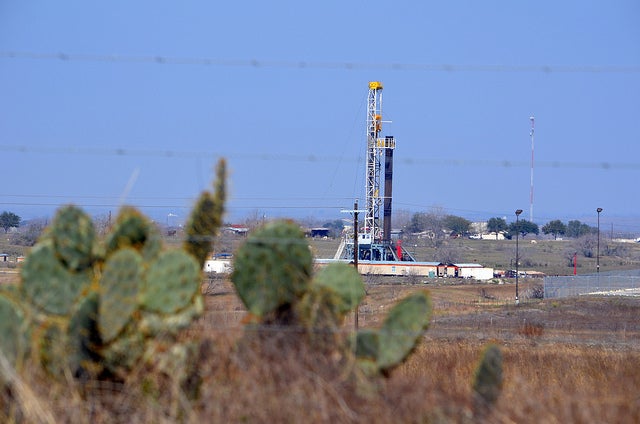 The west is rightly known for mountain views and desert vistas. Many of these landscapes are managed by the U.S. Department of Interior’s Bureau of Land Management (BLM) on behalf of all Americans. But something else is a major part of the region as well – tens of thousands of oil and gas wells and their associated infrastructure.
The west is rightly known for mountain views and desert vistas. Many of these landscapes are managed by the U.S. Department of Interior’s Bureau of Land Management (BLM) on behalf of all Americans. But something else is a major part of the region as well – tens of thousands of oil and gas wells and their associated infrastructure.
More than 90 percent of oil and gas production on BLM lands comes from the Western U.S. The tax and royalty revenue generated by this production is used to fund local infrastructure needs –schools, roads and other improvements — in rural and tribal communities. But due to outdated policies (they have not been significantly revised in 30 years), too much of our natural gas has been going to waste. That means these communities, and American taxpayers in general, are losing out.
In fact, in 2013, oil and gas companies threw away $330 million worth of the public’s gas according to a recent report – shortchanging the communities that rely on the revenue from these resources most.
A Big Step Forward
Just last month, in an effort to more responsibly manage this public resource, the BLM began a process to update these three-decades-old oil and gas policies. Now, the public has a chance to have a voice in this process as well. Once adopted, BLM’s proposal will make significant reductions in the amount of methane that the industry is currently allowed to flare, leak, or vent into the atmosphere in massive quantities.
The proposal is a positive step for taxpayers, air quality, and our climate. Because natural gas essentially is methane, delivering gas to market (instead of the atmosphere) delivers significant royalty payments back to American taxpayers. According to a recent report, without action, the public could lose out on $800 million over the next decade as a result of wasteful venting and flaring practices. These efforts also will significantly reduce emissions of methane, a potent greenhouse gas responsible for about a quarter of global warming we are experiencing today.
Covering Existing Sources
One aspect of the proposal that’s particularly powerful is its commitment to address pollution and waste occurring now. The BLM’s proposed rules will set an important precedent for the Environmental Protection Agency who so far has declined to regulate existing oil and gas wells. The BLM rule targets new as well as existing sources, the wells and equipment in use today that are contributing to the more than 7 million metric tons of methane pollution emitted by the industry nationwide each year.
BLM’s proposal is a strong step toward better management of our energy resources and tackling the issue of climate change. But there’s room for improvement. Over the next two months, BLM will solicit public comments on the proposal and we encourage the agency to consider these key elements as they finalize their rules:
- More frequent leak inspections. Requiring operators to check their facilities for leaks on a quarterly basis will make a big dent in industry’s emissions. Colorado and Wyoming have successfully enacted similar policies on leak inspections, setting a strong precedent for BLM to level the playing field.
- Limit the waste of federal resources due to gas flaring. The BLM proposal places a presumptive ban on venting and some restrictions on flaring of natural gas from oil wells. But the rule should make gas capture planning mandatory and binding and should place time limits on the wasteful practice.
BLM can and should act to limit methane waste and pollution from federal and tribal lands. In fact 80 percent of Westerners support commonsense rules that can cut oil and gas waste on publically owned lands. Fortunately, those voices can be heard in coming weeks as the BLM accepts public comment on the proposal and in hearings across the west. We’ll be there and we hope you will join us to fight for better climate protections, reduced waste, and cleaner air.
Photo source: Earthworks









